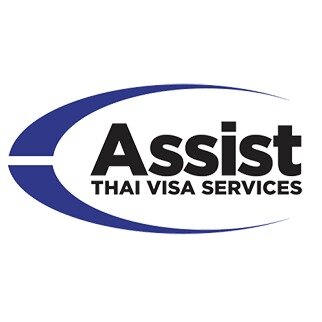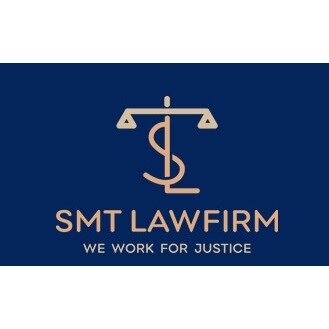About Housing, Construction & Development Law in Chiang Mai, Thailand
Chiang Mai, a burgeoning city in northern Thailand, presents a unique landscape for housing, construction, and development projects. Known for its vibrant culture and increasing attractiveness as an expatriate and tourist destination, Chiang Mai is seeing a rapid expansion in real estate and infrastructure. With this growth, legal considerations become crucial to ensure that developments comply with national and local regulations. Understanding the legal framework that governs construction and property development in Thailand is essential for individuals and businesses looking to engage in such activities in Chiang Mai.
Why You May Need a Lawyer
There are several reasons why individuals and businesses may need legal assistance when dealing with housing, construction, and development in Chiang Mai:
- Drafting and reviewing contracts related to property sales, leases, and construction agreements.
- Navigating the complexities of obtaining construction permits and ensuring compliance with local zoning laws.
- Managing disputes involving property boundaries, construction defects, or breach of contract.
- Handling issues related to foreign ownership of property and understanding the legal constraints involved.
- Dealing with tax implications associated with real estate transactions and developments.
- Seeking assistance with the acquisition of land and understanding land use regulations.
Local Laws Overview
In Chiang Mai, and Thailand at large, construction and development are governed by a mix of national and local regulations. Key legal aspects include:
- Building Control Act: Outlines the standards for construction, including safety and design requirements.
- Environmental Impact Assessment (EIA): Required for certain projects to ensure they do not negatively impact the environment.
- Foreign Land Ownership: Non-Thai nationals face restrictions but can explore options such as leaseholds or forming a Thai company to hold property.
- Condo Law: Foreigners can own up to 49% of the total area of condominium buildings, offering an alternative to land ownership.
- Zoning Laws: Zoning regulations control the use of different areas of the city, impacting where and what kind of development can occur.
Frequently Asked Questions
What are the common legal issues faced in housing and construction in Chiang Mai?
Common issues include property disputes, construction defects, delays in project completion, and compliance with local building codes and environmental regulations.
Can foreigners buy land in Chiang Mai?
No, foreigners cannot directly own land; however, they can lease land for a term or own structures or buildings constructed on the land.
How can I ensure my construction project complies with local laws?
Engaging with local legal and construction experts is critical to understanding and navigating the local regulations, including obtaining necessary permits and adhering to building codes.
What are the typical legal fees for housing and construction services in Chiang Mai?
Legal fees vary based on the complexity of the project, but typically include consultancy fees, contract drafting, and negotiation services. It is advisable to seek quotes from multiple firms.
Is it necessary to have a lawyer when buying a property?
While not legally required, having a lawyer is highly recommended to navigate the legalities of purchasing property, ensuring due diligence, and protecting your interests.
What should I consider when entering a construction contract?
Consider including clear terms about timelines, costs, quality standards, dispute resolution procedures, and any contingencies for changes in plan or cost overruns.
How do zoning laws affect property development?
Zoning laws determine what types of buildings can be constructed in certain areas and can affect the height, use, and density of developments.
Are there taxation issues associated with property development?
Yes, property transactions may incur taxes such as transfer fees, withholding taxes, and specific business taxes, all of which require careful planning to manage effectively.
What is an EIA and when is it required?
An Environmental Impact Assessment evaluates the potential environmental impacts of a project and is required for larger developments that may significantly affect natural resources.
How can disputes related to housing and construction be resolved?
Disputes can be managed through negotiation, mediation, arbitration, or, as a last resort, court litigation. Having a well-drafted contract with a clear dispute resolution clause can help prevent lengthy legal battles.
Additional Resources
Here are some resources and organizations that can provide further assistance:
- Chiang Mai Land Office: Responsible for land registration and transfer matters.
- Department of Public Works and Town & Country Planning: Oversees planning and construction approvals.
- Thai Real Estate Association: Offers resources and guidance on property market trends and legal matters.
- Local law firms: Many law firms specialize in real estate and construction law, providing in-depth local knowledge and legal support.
Next Steps
If you need legal assistance related to housing, construction, or development in Chiang Mai, consider the following steps:
- Consult with legal professionals specializing in Thai real estate and construction law to understand your rights and obligations.
- Research and reach out to reputable law firms or legal advisors in Chiang Mai for initial consultations.
- Prepare all relevant documentation, such as land titles, contracts, permits, and previous correspondence, before seeking legal advice.
- Inquire about the specific legal services you may need, negotiate fees, and understand the lawyer's approach to your case or situation.
Taking these steps can help ensure that your involvement in housing, construction, and development is legally sound and safeguarded against potential pitfalls.
Lawzana helps you find the best lawyers and law firms in Chiang Mai through a curated and pre-screened list of qualified legal professionals. Our platform offers rankings and detailed profiles of attorneys and law firms, allowing you to compare based on practice areas, including Housing, Construction & Development, experience, and client feedback.
Each profile includes a description of the firm's areas of practice, client reviews, team members and partners, year of establishment, spoken languages, office locations, contact information, social media presence, and any published articles or resources. Most firms on our platform speak English and are experienced in both local and international legal matters.
Get a quote from top-rated law firms in Chiang Mai, Thailand — quickly, securely, and without unnecessary hassle.
Disclaimer:
The information provided on this page is for general informational purposes only and does not constitute legal advice. While we strive to ensure the accuracy and relevance of the content, legal information may change over time, and interpretations of the law can vary. You should always consult with a qualified legal professional for advice specific to your situation.
We disclaim all liability for actions taken or not taken based on the content of this page. If you believe any information is incorrect or outdated, please contact us, and we will review and update it where appropriate.






![Legal & Business Consultancy in Chiang Mai [LBC CHIANGMAI]](https://lawzana.com/storage/firms/2674/16209701614886.jpg)










